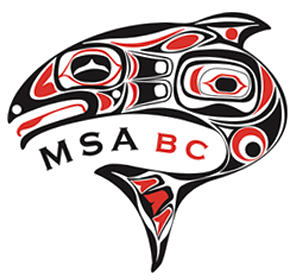MASTERS SWIMMING

More and more of us realize that regular exercise contributes to positive physical and mental health, whatever our age. Swimming is one of the safest and best ways to exercise. It doesn’t abuse the joints with sudden shocks and pounding, benefits the cardiovascular system, reduces cholesterol, and positively influences muscle tone, endurance, and emotional well-being. Besides, it’s fun! Masters swimming provides excellent opportunities to exercise with others, to improve swimming skills and stamina, and to enjoy doing it.
The Masters swimming prime credo is fitness. Masters swimming means wanting to be fit, having the pleasure of being with other swimmers, sharing these interests while doing it, and, for some, releasing those competitive juices from time to time. Masters Swimming encourages competition for swimmers of all abilities who like to challenge themselves and others at swim meets. Thus, by being a member of a Masters swim club, there is an opportunity not only for fitness but also to meet and make new friends, compete, and travel.
Who are Masters Swimmers?
If you are 18, you are old enough to join. Even if you are over 90+,
you can continue to be an important and active member
of Masters Swimming 7,500 swimmers nationwide.
Swimmers at all
levels of ability
Your wanting to swim is what matters. How fast or slow you swim may or may not be important to you. Most of your fellow swimmers are more interested in you as a person. Most will be trying to enhance their swimming with improved skills, strength, and stamina.
Swimmers in health or rehabilitation
It is better to enjoy good health whenever you swim, but you don’t have to be 100% fit or free of ailments to swim. Swimming has helped many feel better while still hampered, partially recover from ailments, or even fully regain their health. The process of swimming smoothes the rough spots of less-than-perfect health even when it is not able to cure what is wrong.
Training alone
or together
While most Masters Swimming involves group activities on a fairly regular basis, this is not the only way. Some choose to swim by themselves most or all of the time and only occasionally participate in Masters activities. That is fine, too.
Swimmers can be found everywhere
Most areas have Masters Swimming now. To get information about what is going on in your area, check out our Find a Club page or get in touch with our Registrar.
What do Masters Swimmers do??
Workouts
Anywhere from a few to a pool full of Masters swimmers get together on a scheduled basis to exercise and train together. Many workouts have coaches who tell the swimmers what to swim, help with stroke technique, and sustain enthusiasm. Some Masters groups piggyback on age-group, high school, or other workout groups. Other Masters swimmers work out by themselves. This may be due to choice or the fact that they cannot make the scheduled times offered. However, with more workout groups forming throughout the province, more opportunities to join a group are becoming possible. Many individual swimmers get together with a friend or two and rely on workouts posted by their Masters club.
Swim Meets
MSABC offers numerous sanctioned meets each season (~October-April). In most meets, you'll swim in a heat of swimmers who swim at about the same speed (genders and age groups are typically mixed in the heats of local meets). Results are determined by five-year age groups and gender. At national and international meets, men and women swim in separate heats. Meets not only provide personal challenges but also provide the chance to socialize with other swimmers from various clubs. Meets last from a few hours to a day or more. You may sign yourself up only for the race(s) in which you wish to compete with an approximate entry time based on what you think you can achieve. You are in complete control over how many and what events you wish to swim. You may also consider open water swimming!
Swim Clinics
Swim clinics range in scope from informal affairs with local experts to multi-day events run by professionals. They are often designed as structured sessions to improve stroke technique and speed. Some clinics will also deal with nutrition, fitness, physiology, and psychology, particularly as they relate to swimming.
Social Activities
Most teams include social get togethers outside of practice time-- often after practice or after a meet. Many meets invite all teams to a post-meet social. Other social activities might include team BBQs, potluck suppers, social dances, or even other sports activities.
